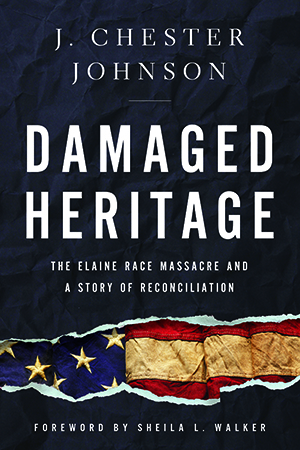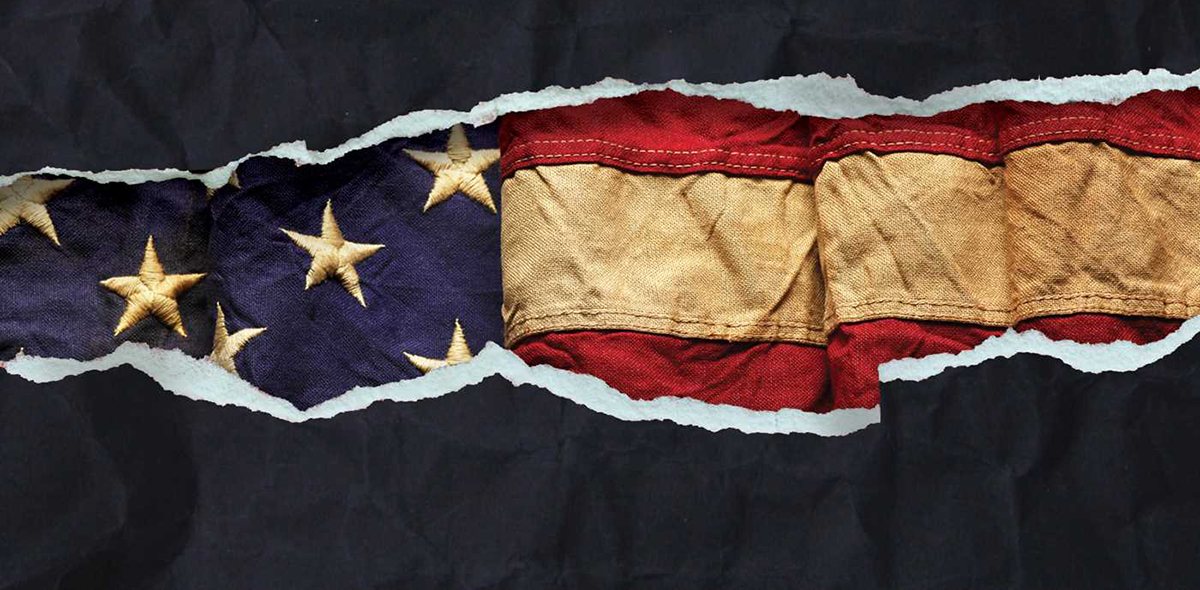March 25, 2021
Literary Hub Shares Excerpt From Damaged Heritage by J. Chester Johnson
Explore a Deliberately Erased Chapter in American History

In 2008, poet and essayist J. Chester Johnson was asked to write the Litany of Offense and Apology for the National Day of Repentance when the Episcopal Church formally apologized for its role in transatlantic slavery and related evils. In his research, he learned about the 1919 Elaine Massacre, in which more than 100 African-American men, women, and children (possibly, hundreds) were killed by white vigilantes and federal troops. Then, digging further, Johnson discovered that his beloved grandfather, who’d raised him during his Arkansas boyhood, had participated in the Massacre.
Damaged Heritage not only describes how Johnson comes to terms with these life-shattering revelations, but it also describes the racial reconciliation he forges with Sheila. L. Walker, descendant of several Massacre victims, who writes the Foreword to the book. It’s a story of guilt, pain, and racial reconciliation that offers lessons for an entire nation grappling with a history of racism.
FROM THE BOOK: Across the sweeping canvas of American history, two markers, inherited and ineluctable, from the Elaine Race Massacre of 1919 in Phillips County, Arkansas, invite a degree of attention yet to be fully received from the country’s public consciousness. First, the sheer number of persons who died in the Massacre—more particularly, the countless African-Americans who perished—would certainly cause this massacre to be judged one of the deadliest racial conflicts, perhaps the deadliest racial conflagration, in the history of the nation.
READ THE FULL EXCERPT

An illuminating journey to racial reconciliation experienced by two Americans—one black and one white.
The 1919 Elaine Race Massacre, arguably the worst in our country's history, has been widely unknown for the better part of a century, thanks to the whitewashing of history. In 2008, Johnson was asked to write the Litany of Offense and Apology for a National Day of Repentance, where the Episcopal Church formally apologized for its role in transatlantic slavery and related evils.
In his research, Johnson came upon a treatise by historian and anti-lynching advocate Ida B. Wells on the Elaine Massacre, where more than a hundred and possibly hundreds of African-American men, women, and children perished at the hands of white posses, vigilantes, and federal troops in rural Phillips County, Arkansas.
As he worked, Johnson would discover that his beloved grandfather had participated in the Massacre. The discovery shook him to his core. Determined to find some way to acknowledge and reconcile this terrible truth, Chester would eventually meet Sheila L. Walker, a descendant of African-American victims of the Massacre. She herself had also been on her own migration in family history that led straight to the Elaine Race Massacre. Together, she and Johnson committed themselves to a journey of racial reconciliation and abiding friendship.
BUY THE BOOK
RECENT POSTS
DAMAGED HERITAGE and J. Chester Johnson on Times Square Jumbotron Dec. 21st
Damaged Heritage by J. Chester Johnson Selected for Library of Congress Shop
Damaged Heritage by J. Chester Johnson: Anti-Racism Text at St. Luke in the Fields
J. Chester Johnson's "Night" Featured by Carnegie Hill Village
J. Chester Johnson Named To Board of Advisors For Poetry Outreach Center
Conversation Among Descendants of the Elaine Race Massacre 104 Years Later: Zoom Recording Available
J. Chester Johnson Interviewed by Tavis Smiley
Cornelius Eady's Interview of J. Chester Johnson for Poets House/WBAI "Open House" Program
NPR Article on Elaine and Tulsa Race Massacres
Favorable Review of "Damaged Heritage" in Current Issue of American Book Review
Damaged Heritage Placed On Selective Goodreads’ List of Best Nonfiction Books
Damaged Heritage Motivates Nationwide Talks on Social Justice and Racial Equity
J. Chester Johnson Writes in the ARKANSAS TIMES About Another Arkansas Race Massacre
ARCHIVES
December 2024
October 2024
April 2024
March 2024
October 2023
August 2023
April 2023
January 2023
December 2022
September 2022
April 2022
October 2021
September 2021
August 2021
March 2021
December 2020
October 2020
July 2020
June 2020
May 2020
January 2020
December 2019
October 2019
September 2019

